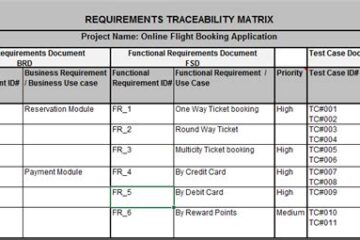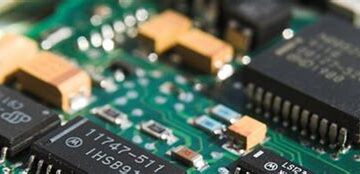What is Full Turnkey PCB Assembly?
Full turnkey PCB assembly is a comprehensive service that handles the entire PCB manufacturing process from start to finish. It includes:
- PCB design and layout
- Component sourcing and procurement
- PCB fabrication
- Component placement and soldering
- Testing and quality control
- Packaging and shipping
With full turnkey PCB assembly, start-ups and small businesses can outsource the entire process to a single provider, simplifying the supply chain and reducing the burden on their internal resources.
Benefits of Full Turnkey PCB Assembly for Start-ups and Small Businesses
1. Cost Savings
One of the primary advantages of full turnkey PCB assembly is cost savings. By outsourcing the entire process to a single provider, start-ups and small businesses can benefit from economies of scale and reduced overhead costs. Full turnkey assembly providers often have established relationships with component suppliers and can negotiate better prices due to their higher volume orders.
| Cost Factor | In-House Assembly | Full Turnkey Assembly |
|---|---|---|
| Equipment and Facility | High | Low |
| Labor | High | Low |
| Component Sourcing | High | Low |
| Inventory Management | High | Low |
| Testing and Quality Control | High | Low |
2. Time Savings
Full turnkey PCB assembly can significantly reduce the time required to bring a product to market. By outsourcing the entire process, start-ups and small businesses can focus on their core competencies, such as product design and marketing, while the assembly provider handles the manufacturing. This parallel processing approach allows for faster product development cycles and shorter time-to-market.
3. Access to Expertise and Advanced Technology
Full turnkey PCB assembly providers have the expertise and advanced technology needed to handle complex PCB designs and high-volume production. They invest in state-of-the-art equipment, such as automated pick-and-place machines and reflow ovens, which may be cost-prohibitive for start-ups and small businesses to acquire in-house. Additionally, assembly providers employ experienced engineers and technicians who can provide valuable insights and recommendations to optimize PCB designs for manufacturability and reliability.
4. Scalability and Flexibility
As start-ups and small businesses grow, their PCB assembly needs may change. Full turnkey assembly providers offer the scalability and flexibility to accommodate these changes. They can quickly ramp up production to meet increasing demand or adapt to design modifications without requiring significant investments in equipment or personnel.
5. Quality Assurance
Full turnkey PCB assembly providers adhere to strict quality control processes to ensure the reliability and performance of the final product. They employ automated optical inspection (AOI) and x-ray inspection to detect and correct any defects or issues during the assembly process. Additionally, they conduct thorough testing, including functional testing and burn-in, to verify the PCBs meet the required specifications.
Choosing the Right Full Turnkey PCB Assembly Provider
When selecting a full turnkey PCB assembly provider, start-ups and small businesses should consider the following factors:
- Experience and Expertise
- Quality Control Processes
- Technology and Equipment
- Capacity and Scalability
- Communication and Customer Support
- Pricing and Lead Times
By partnering with a reputable and experienced full turnkey PCB assembly provider, start-ups and small businesses can ensure the success of their products and focus on their core competencies.

Frequently Asked Questions (FAQ)
1. How long does full turnkey PCB assembly typically take?
The lead time for full turnkey PCB assembly depends on various factors, such as the complexity of the PCB design, the availability of components, and the production volume. However, most full turnkey assembly providers can deliver completed PCBs within 2-4 weeks.
2. What is the minimum order quantity (MOQ) for full turnkey PCB assembly?
The MOQ for full turnkey PCB assembly varies among providers. Some providers offer low MOQs, such as 100 units, while others may require higher volumes. It’s essential to discuss MOQ requirements with potential assembly providers to ensure they align with your production needs.
3. Can full turnkey PCB assembly accommodate custom components or unique PCB designs?
Yes, full turnkey PCB assembly providers can typically accommodate custom components and unique PCB designs. However, it’s crucial to communicate any special requirements or constraints early in the process to ensure the assembly provider can meet your needs.
4. How can start-ups and small businesses ensure the quality of their PCBs when outsourcing to a full turnkey assembly provider?
Start-ups and small businesses can ensure the quality of their PCBs by partnering with a reputable full turnkey assembly provider that adheres to strict quality control processes and industry standards. It’s also essential to clearly communicate your quality requirements and specifications to the assembly provider and request regular updates and inspection reports throughout the production process.
5. What is the typical cost structure for full turnkey PCB assembly?
The cost structure for full turnkey PCB assembly typically includes the following components:
- PCB fabrication
- Component sourcing and procurement
- Assembly labor
- Testing and quality control
- Packaging and shipping
The total cost will depend on factors such as the PCB complexity, component availability and cost, production volume, and any additional services required. Full turnkey assembly providers often provide quotes based on these factors and may offer volume discounts for larger orders.
Conclusion
Full turnkey PCB assembly offers numerous benefits for start-ups and small businesses, including cost savings, time savings, access to expertise and advanced technology, scalability and flexibility, and quality assurance. By outsourcing the entire PCB assembly process to a reputable provider, start-ups and small businesses can focus on their core competencies and bring their products to market faster and more efficiently. When selecting a full turnkey assembly provider, it’s essential to consider factors such as experience, quality control, technology, capacity, communication, and pricing. By partnering with the right provider, start-ups and small businesses can ensure the success of their products and position themselves for growth in their respective markets.



0 Comments